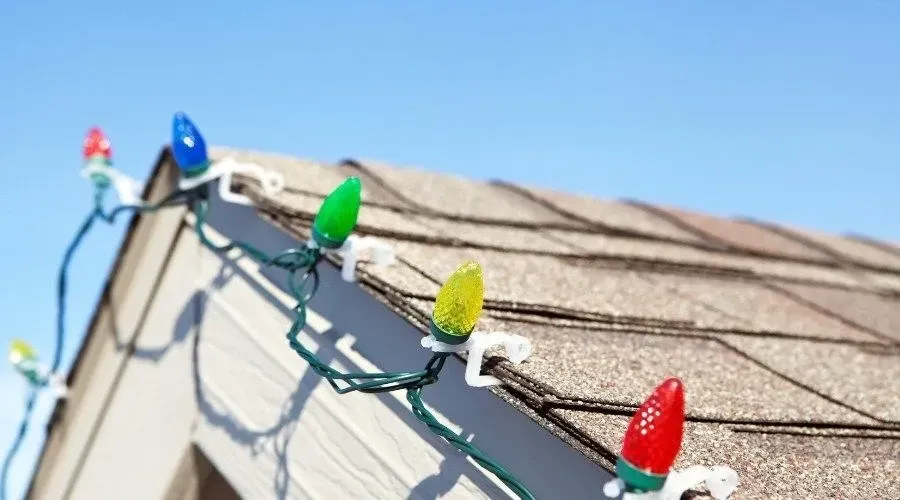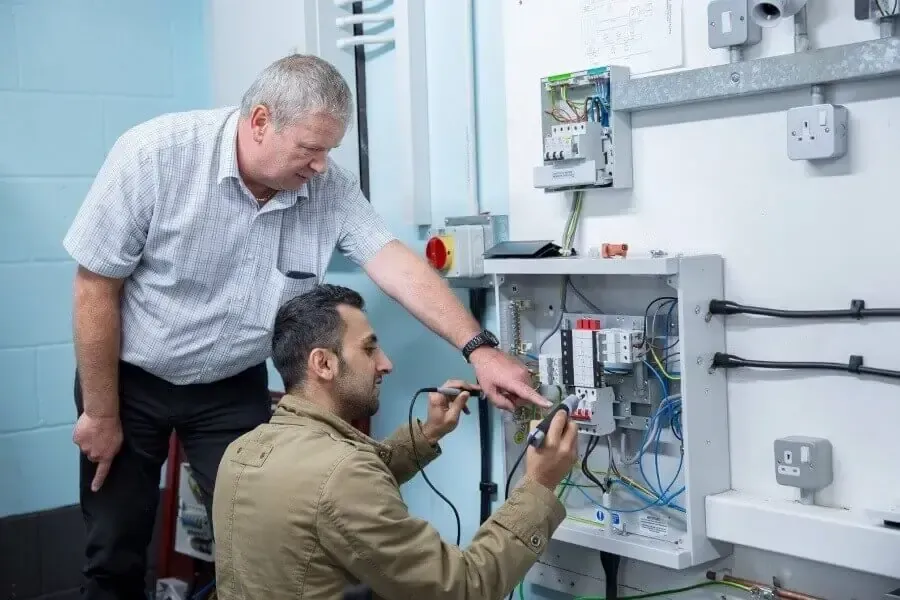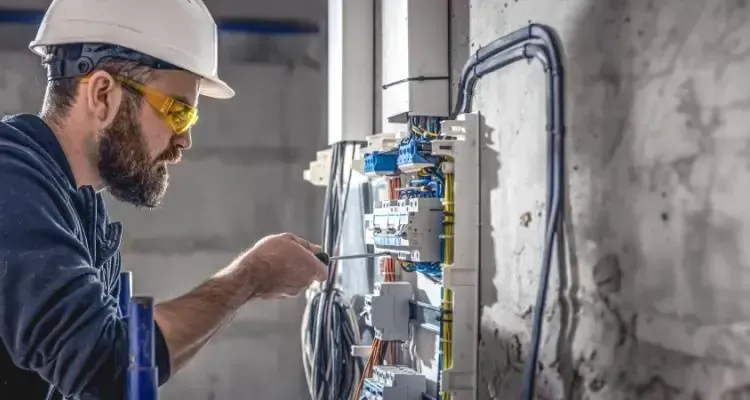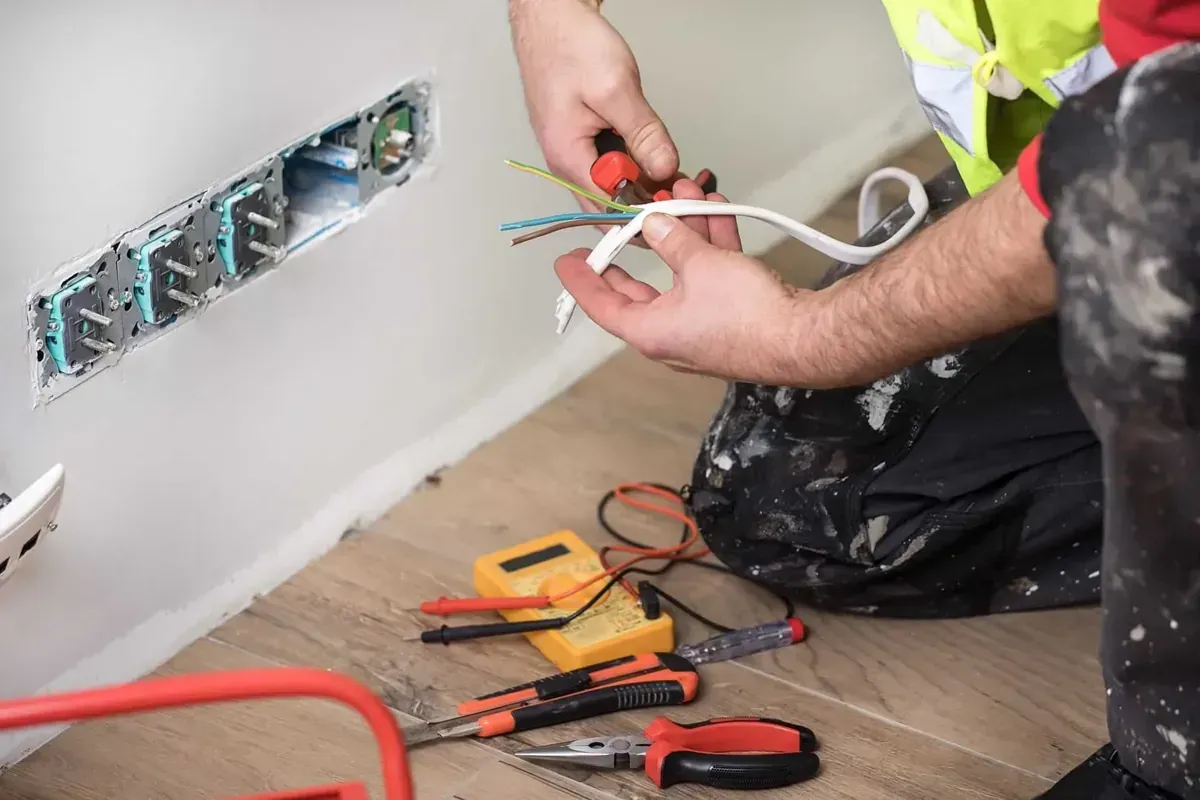Winter Electrical Tips for Throop Homeowners: Prevent Overloads and Stay Safe
Winter in Throop brings freezing temperatures, ice storms, and heavy snowfall that place significant demands on your home's electrical system. As residents combat the cold with space heaters, electric blankets, and increased indoor lighting, the risk of electrical overloads rises dramatically. Understanding how to safely manage your electrical usage during Pennsylvania winters isn't just about comfort; it's about protecting your family from potential fire hazards and costly damage.
Why Winter Increases Electrical Demands
Pennsylvania winters force homeowners to rely heavily on their electrical systems. Heating appliances run continuously, families spend more time indoors using electronics, and outdoor lighting operates for extended hours during long, dark evenings. This combination pushes many older electrical systems beyond their designed limits.
Your home's electrical panel can only handle a specific amount of power at once. Think of it like a highway with a maximum number of cars it can safely accommodate. When too many high-powered devices operate simultaneously, you're creating traffic jams in your electrical system that generate dangerous heat buildup in wires and connections. Homes built decades ago weren't designed for today's electrical appetites. Modern families use far more devices than homeowners did in the 1970s or 1980s. Air fryers, instant pots, multiple computers, large televisions, and countless phone chargers all add up, especially when combined with winter heating needs.
Spotting Problems Before They Become Dangerous
Your electrical system gives you clues when something's wrong. Pay attention to these warning signals that indicate your home needs professional electrical help. If your circuit breakers trip frequently, especially when using certain appliances or in specific rooms, your circuits are working too hard. Breakers are designed to shut off when they detect unsafe conditions, so repeated tripping means you're regularly pushing your system past safe limits.
Lights that dim when you turn on appliances like microwaves, hair dryers, or space heaters tell you those circuits are overloaded. The voltage drop causes the dimming effect, showing that your wiring struggles to deliver enough power for everything running at once. Check your outlets regularly by placing your hand near them. Outlets should never feel warm to the touch. Heat indicates dangerous conditions developing inside the wall. Similarly, outlet covers that look discolored or melted require immediate professional attention.
Using Space Heaters Safely
Space heaters are winter necessities for many Throop homes, but they're also leading causes of electrical fires. A typical space heater uses 1,500 watts, which is more power than running a refrigerator, several lamps, and a television combined. Never plug space heaters into extension cords or power strips. These connections can't handle the continuous high power draw that heaters require. The cords overheat, insulation melts, and fires start. Always plug heaters directly into wall outlets.
Give your space heater plenty of room to breathe. Keep furniture, curtains, blankets, clothing, and papers at least three feet away on all sides. Modern heaters have safety features, but they still get hot enough to ignite nearby materials. Turn off space heaters whenever you leave the room and always before going to bed. Most heater fires happen when unattended units tip over or overheat while nobody's watching. Don't run multiple space heaters in your home simultaneously unless you're certain your electrical system can handle the load. Better yet, use one heater and move it between rooms as needed rather than running several at once.
Holiday Decoration Electrical Safety

Holiday lights and decorations bring joy to winter months but create electrical risks when installed improperly. LED lights are your best choice because they use about 75% less electricity than old-style incandescent bulbs and stay cool to the touch. Before hanging any lights, examine every strand carefully. Look for cracked sockets, frayed wires, or loose connections. If you find damage, throw those lights away. Don't try to use them "just one more year" because the risk isn't worth it.
Read the packaging to see how many light strands you can safely connect together. Most allow only three to five strands linked end to end. Going beyond this limit overloads the wiring inside the light strings, creating fire hazards even if your circuit breaker doesn't trip. For outdoor decorations, only use lights and cords labeled for outdoor use. Indoor cords lack weather protection and will fail when exposed to snow, ice, and rain. Use outdoor-rated GFCI outlets for all exterior electrical connections to prevent shock hazards. Plug holiday lights into timers so they automatically turn off at bedtime. This saves electricity, extends light lifespan, and eliminates fire risks from lights running unattended overnight.
Kitchen Safety During Winter Cooking
Winter holidays mean big meals with multiple appliances running together. Ovens, microwaves, slow cookers, electric kettles, and mixers all demand significant power. Using too many simultaneously on the same circuit causes overloads. Spread out your appliance use when possible. If you're running the oven and stovetop, wait to use the microwave or toaster. This simple timing adjustment prevents circuit overloads during meal preparation. Keep all electrical cords away from stovetops, ovens, and other heat sources. Heat damages cord insulation, exposing bare wires that create shock and fire hazards. Route cords along countertops away from cooking areas.
Protecting Pipes from Freezing
Throop's bitter winters sometimes freeze water pipes, leading homeowners to use heat tape or heating cables for protection. While these products work well, improper installation causes numerous electrical fires every year. Only use heating cables specifically designed for pipes. Follow installation instructions exactly, paying special attention to warnings about overlapping. Never let heat tape cross over itself because this creates concentrated hot spots that can ignite. Inspect pipe heating cables each fall before winter arrives. Look for cracks, worn spots, or damaged areas. Replace old or questionable cables rather than risking another season with compromised equipment. Plug pipe heaters into GFCI-protected outlets whenever possible for additional safety. Consider whether better pipe insulation might solve freezing problems without requiring electrical heating solutions.
Your Electrical Panel Needs Attention Too
The electrical panel in your basement or utility room is your home's power command center. Keeping it in good condition prevents countless problems. Every few years, have a professional electrician inspect your panel, especially if your home was built before 1990. Older panels often lack modern safety features and may not provide enough power for current lifestyles. Modern safety devices called AFCI and GFCI breakers detect dangerous conditions and shut off power before fires or shocks occur. If your panel doesn't have these protections, upgrades can dramatically improve your home's safety. Your panel needs clear space in front of it for safety and code compliance. Keep at least three feet clear; don't stack boxes, store paint cans, or pile anything near your electrical panel.
Power Outage Preparation
Winter storms knock out power in Throop regularly. If you use a portable generator for backup power, safe operation is critical for preventing carbon monoxide poisoning and electrical hazards. Generators must run outdoors, away from windows, doors, and vents. The exhaust contains deadly carbon monoxide gas that kills quickly in enclosed spaces. Position your generator at least 20 feet from your house with exhaust pointing away from buildings. Connect appliances to generators using heavy outdoor-rated extension cords. Never plug a generator into a wall outlet trying to power your whole house. This "backfeeding" can electrocute utility workers and destroy your electrical system. Only run essential appliances on your generator to avoid overloading it. Calculate the total wattage of everything you plug in and keep it below your generator's rated capacity.
When to Call Professional Help
Some electrical problems require licensed electricians with proper training and tools. Don't attempt DIY repairs on circuit breakers, electrical panels, or permanent wiring. These jobs involve serious risks and strict code requirements. Call Bee-lectric immediately if you experience repeated breaker trips, see sparks from outlets, smell burning odors, or notice warm outlets. These situations indicate active hazards that worsen rapidly without professional repair. Bee-lectric serves Throop and surrounding Pennsylvania communities with complete electrical services. Our experienced technicians understand local homes and provide reliable solutions for winter electrical challenges.
Staying Safe All Winter Long
Winter electrical safety comes down to awareness and smart habits. Understand what your electrical system can handle, watch for warning signs, and use heating equipment responsibly. These simple practices protect your home and family throughout Pennsylvania's coldest months. Don't ignore electrical warning signs hoping they'll resolve themselves. Small problems become dangerous emergencies when left unaddressed. Professional electrical inspections identify hidden issues before they cause fires or failures.
Contact Bee-lectric at (570) 525-5908 to schedule your winter electrical safety inspection. Our qualified electricians will evaluate your system's condition, identify potential problems, and recommend solutions ensuring safe, reliable electrical service all season long.



